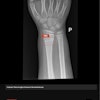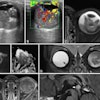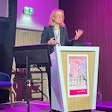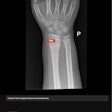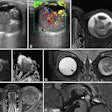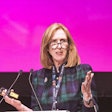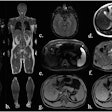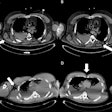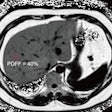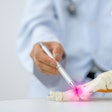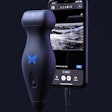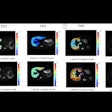
NEW YORK (Reuters Health) - Screening for mutations in a gene known as CHEK2 may help determine a woman's odds of breast cancer if the disease runs in her family, Polish scientists suggested Monday.
A woman harboring a CHEK2 mutation, for instance, would have a 34% risk of developing breast cancer if her mother or sister had the disease, they estimate.
But U.S. experts said the test isn't ready for prime time yet, and emphasized that Polish women might be different from Americans.
"It would be premature to tell women that you should all go out and get CHEK2 screening," said Dr. James P. Evans, editor-in-chief of the American College of Medical Genetics' journal Genetics in Medicine.
Still, he called the study "a nice start."
Women with a suspicious pattern of breast or ovarian cancer in the family are already encouraged to get screened for mutations in the BRCA1 and BRCA2 genes that warn of a heightened tumor risk.
But if those tests come up empty, doctors don't have much to offer, Dr. Diana Petitti, of the Arizona State University in Phoenix, told Reuters Health.
"This does represent an important breakthrough," she said of the new findings. "But this is a field where replication is critical."
The Polish researchers tested the genes of nearly 7,500 women with breast cancer who didn't have BRCA1 mutations.
They found that 3% had a certain type of mutation in the CHEK2 gene. Among women without breast cancer, less than 1% harbored mutations.
Although CHEK2 has been tied to cancer before, it wasn't clear what role cancer in the family played. When the team asked the women whether they had any affected relatives, those whose mother or sister had had breast cancer were at highest risk.
About one in eight American women -- or some 12% -- will get breast cancer at some point in their lives.
In Poland, that figure is only 6%, Dr. Cezary Cybulski of the Pomeranian Medical University in Szczecin and colleagues write in theJournal of Clinical Oncology.
From their findings, they estimate that a woman with a CHEK2 mutation has a risk of 20%. If she also has a mother or sister with breast cancer, her risk jumps to 34%, and to 44% if a second-degree relative is also sick.
"CHEK2 mutation screening detects a clinically meaningful risk of breast cancer and should be considered in all women with a family history of breast cancer," the researchers say.
According to Evans of the American College of Medical Genetics, such tests are already available, likely for less than $100. While that may sound cheap, it adds up quickly, he added.
"If we give this test to all women who have a close relative with breast cancer, you are now talking about a huge expenditure," Evans told Reuters Health.
At this point, he said, women with a family history of breast cancer would be better off talking to their doctor, or a genetic counselor, to find out what options they have.
Those who have BRCA1/2 mutations, for instance, may consider having their breasts and ovaries removed, or taking certain medications, to stave off tumors.
Petitti also struck a cautious note about the new test.
"We are just not there yet," she said. "It's a matter of research at this point."
By Frederik Joelving
Source: http://bit.ly/r57Y51
Journal of Clinical Oncology, August 28, 2011.
Last Updated: 2011-08-29 16:53:16 -0400 (Reuters Health)
Copyright © 2011 Reuters Limited. All rights reserved. Republication or redistribution of Reuters content, including by framing or similar means, is expressly prohibited without the prior written consent of Reuters. Reuters shall not be liable for any errors or delays in the content, or for any actions taken in reliance thereon. Reuters and the Reuters sphere logo are registered trademarks and trademarks of the Reuters group of companies around the world.

